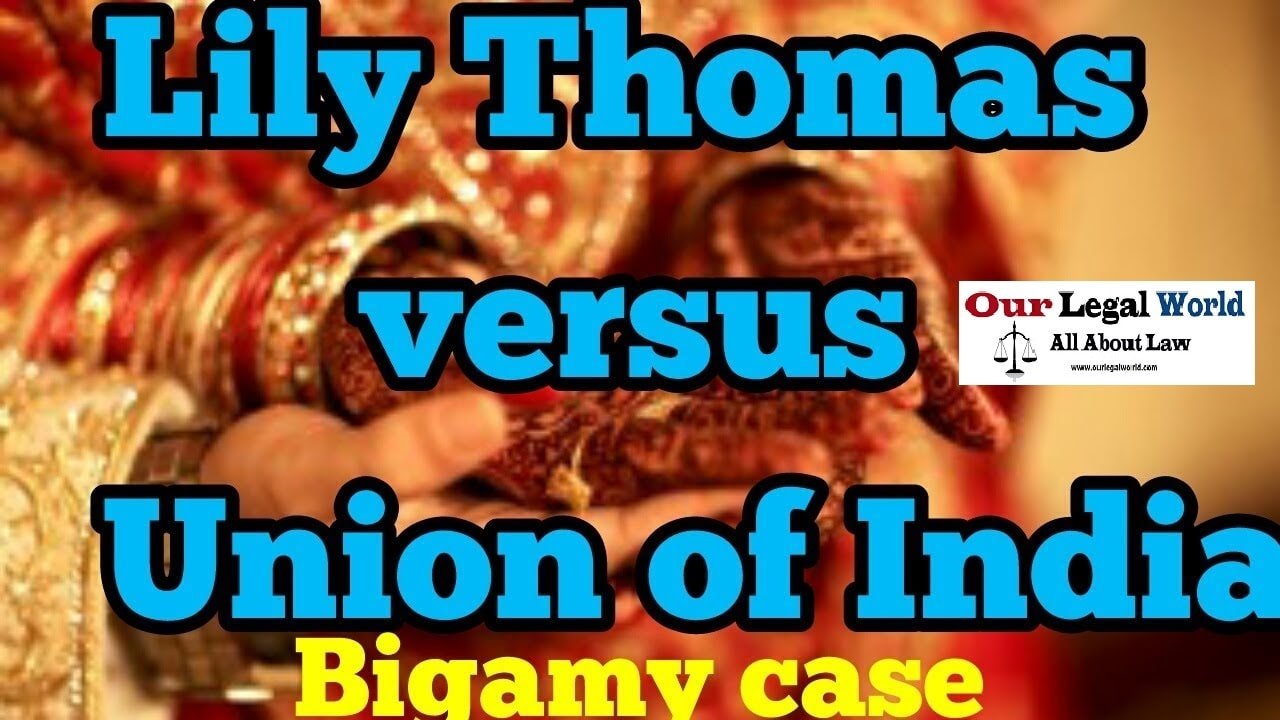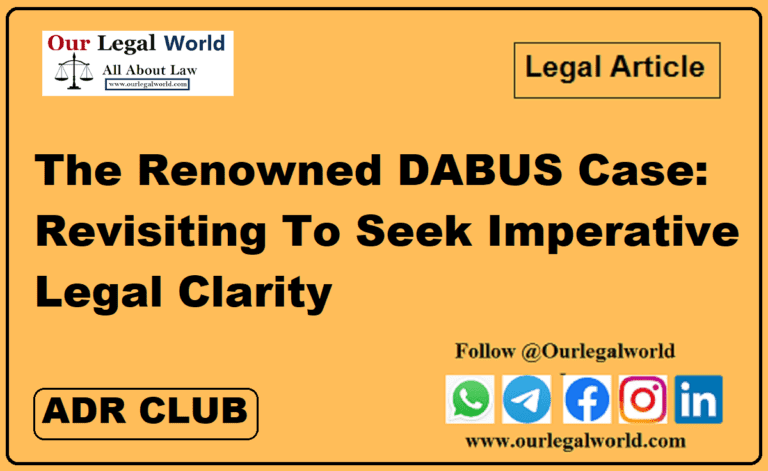Lily Thomas v. Union of India & ors
In Supreme Court of India Citation AIR 2000 SC 1650 Petitioner Lily Thomas Respondent Union Of India & Ors Date of Judgement 5th April, 2000 Bench A.K. Patnaik, Sudhansu Jyoti Mukhopadhaya
Facts
This case brought the landmark judgment in the legal history of India. The case is landmark because Supreme Court considered second marriage to be void without having divorce from the first wife. Petitioner, Mrs. Sushmita Ghosh filed a writ petition before Supreme Court ontending that on 10 May, 1984 she was married to Mr.G.C.Ghosh as per Hindu rituals. Since then they both were living happily together. Then around 1 April, 1992 Mr.Ghosh asked Mrs.Ghosh to have divorce by mutual consent. Mr.Ghosh told her that he has converted to Islam so that he can remarry Miss Vinita Gupta who is a divorcee and a mother of two children. In Hindu Marriage Act, 1959 there is no concept of Bigamy or second marriage. He showed certificate to her which certify that he has been converted to Islam. Petitioner then contacted her aunt and father and told them about her husband’s intention to remarry for which he has converted. They all tried to convince Me.Ghosh but he disagree and insisted Mrs.Ghosh to agree for divorce otherwise she will have to see his second wife. Mr.Ghosh has to converted to Islam only for the purpose of remarriage and he does not have any faith in Islam.
Also Read: Laxmi vs. Union of India and Ors. ( Acid Attack)
Issues Raised:
1. Whether there should be Uniform Civil Code for all citizens of India?
2. Whether a Hindu husband can solemnise second marriage by converting to Islam?
3. Whether the husband would be liable for bigamy under section 494 of IPC?
Judgment
Justice S. Sagir Ahmad said if a party has a living spouse and he contracted or tries to contract second marriage then such marriage would be null and void under Section 11 of Hindu Marriage Act, 1959. Such marriage will also be null and void under Section 17 of the said Act which deals with the offence of Bigamy. The person committing Bigamy under Section 17 shall be punished in accordance with the provisions of 494 and 495 of IPC, 1860. If a Hindu wife files complaint against her husband who during existence of first marriage do second marriage after conversion to another religion then the offence of Bigamy shall be dealt with Hindu Marriage Act, 1959.
The apex Court has said that violation of Article 21 is misconceived, article 21 of the Constitution states that “no person shall be deprived of his right and personal liberty except as per procedure established by law” and herein such an act of marriage while the first marriage still persists is codified in IPC sec 494 there is no violation of Art. 21.
R.P.Sethi Ji said if a Hindu husband after converting to Islam contracts the second marriage without dissolving the first marriage then the second marriage would be invalid under Section 494 & 495 of IPC and the husband will be punished according to that.
References
- https://indiankanoon.org/doc/63158859/
- https://lawtimesjournal.in/lily-thomas-vs-union-of-india-ors/






![Tax Law Internship at Legum Attorney [Chamber of Ashish Panday], Delhi : Apply by 15th May 2025](https://www.ourlegalworld.com/wp-content/uploads/2025/05/IMG_0113-min.png)

